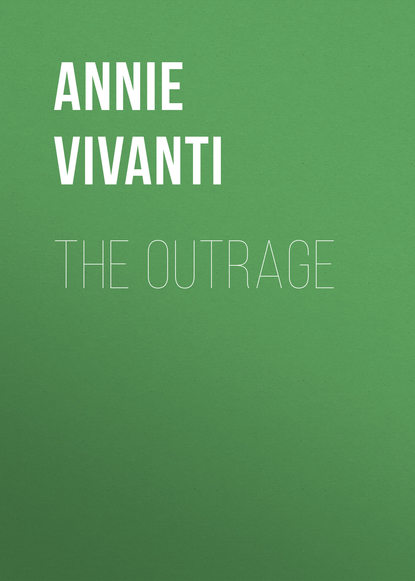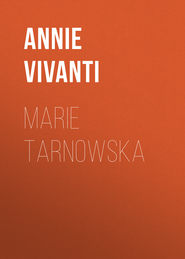По всем вопросам обращайтесь на: info@litportal.ru
(©) 2003-2024.
✖
The Outrage
Автор
Год написания книги
2018
Настройки чтения
Размер шрифта
Высота строк
Поля
"It is nearer," breathed Louise. And even while she said it the sound was repeated, and it was nearer indeed and deeper, and the windows shook. Mireille sat up with wide, shining eyes.
"Is that a thunderstorm?… Or the Germans?"
"It is our guns firing to keep the Germans away," said Louise, bending over her and kissing her. "Try to sleep for an hour, my darling."
Mireille lay back with her silken hair tossed on the pillow.
"Are the Germans trying to come here?" she asked.
There was silence. Then Chérie said, "I don't think so," and Louise added, "Of course not."
"But—might they want to come?" insisted Mireille, blinking to keep her eyes open.
"Why should they come here?" said her mother. "What would they want in this little out-of-the-way village?"
"What indeed?" said Chérie.
Mireille shut her eyes and thought about the Germans. She knew a great deal about them. Frieda had taught her—with the aid of a weekly paper from Munich called Fliegende Blätter—all the characteristics of the nation. The Germans, Mireille had gathered, were divided into two categories—Professors and Lieutenants. The Professors were old men, bald and funny; the Lieutenants were young men, aristocratic and beautiful. The Professors were so absent-minded that they never knew where they were, and the Lieutenants were so fascinating that girls fainted away and went into consumption for love of them. Frieda admitted that there were a few other Germans—poets, who were mostly dead; and housewives, who made jam; and waiters, who were sent to England. But obviously the Germans that had got into Belgium this evening were the Lieutenants and the Professors. Mireille nestled into her pillow and went to sleep. She dreamed that they had arrived and were very amiable and much impressed by her pink dress.
She was awakened by a deafening roar, a noise of splintering wood and falling glass. With a cry of terror she started up; then a flash blinded her, another roar filled the air, and it seemed as if the world were crashing to pieces.
"Mireille!" Her mother's arms were around her and Chérie had rushed in from her room with an ashen face.
"Loulou, let us go at once—let us go to the Bourgmestre or to the Curé! We cannot stay here alone!"
"Yes … let us go …" stammered Louise. "But who will carry our things?"
"What things? We take no things. We are fugitives, Loulou! Fugitives!… Quickly—quickly. Take your money and your jewels—nothing else."
"Quickly, quickly," echoed the whimpering Mireille.
"If we are fugitives," sobbed Louise, looking down at her floating chiffon gown, "we cannot go out into the world dressed like this."
"We cannot stop to change our clothes … we must take our cloaks and dark dresses with us," cried Chérie. "Only make haste, make haste!"
But Louise seemed paralysed with fear. "They will come, they will come," she gasped, gazing at the shattered window; the throbbing darkness beyond seemed to mutter the words Florian had spoken: "Outrage, violence, and slaughter … outrage, violence, and slaughter...."
Suddenly a sheaf of flame rose up into the sky, illuminating the room in which they stood with a fantastic yellow glare. Then a terrific explosion shook the foundations of the house.
Louise catching Mireille in her arms stumbled down the stairs followed by Chérie. They knew not where they were going. Another explosion roared and shattered the coloured staircase window above them to atoms, driving them gasping and panic-stricken into the entrance-room.
Did hours or moments pass? They never knew.
Now there were voices, loud hoarse voices, in the street; short guttural commands and a clatter of hoofs, a clanking of sabres and spurred heels.
"Let me look—let me look out of the window," gasped Chérie, tearing herself free from Louise's convulsive grasp. She stumbled to the window, then turned a haggard face: "They are here."
Mireille shrieked, but her piping voice was drowned by the noise outside.
"They will murder us," sobbed Louise.
"Don't cry! don't cry," wailed Chérie. "The gate is open but the door is locked. They may not be able to get in." But even as she spoke she knew the fallacy of that hope.
"Wait," she whispered. "They are trying the door." Louise had followed her to the window, clutching at the curtains lest she should fall. "Look, some one is trying to open the door...."
Louise bent forward and looked out. "It is Fritz...." she shrieked, and staggered back. "Fritz! He has opened the door to them!"
Now there was the tramp of many feet on the stairs, and loud voices and the clanking of spurs and sword.
As if the imminence of their fate had suddenly invested her with new strength and dignity, Louise stood up, tall and tragic, between the two trembling girls. She crossed herself slowly and devoutly; slowly and devoutly she traced the sign of the cross on Chérie's forehead and on Mireille's. Then with arms entwined they stood motionless. They were ready to die.
The door was kicked open; military figures in grey uniforms thronged the passage and crowded noisily forward.
They stopped as they caught sight of the three entwined figures, and there was an instant's silence; then an officer—a lean man with a grizzled moustache—stepped forward into the room.
Those behind him drew up stiff and straight on the threshhold, evidently awaiting orders.
"Tiens, tiens, tiens!" said the officer, looking the three feminine figures up and down, from glossy head to dainty feet, and his grey eyes twinkled. "A charming tableau. You have made yourselves beautiful to receive us?" His French was perfect; his tone, though slightly contemptuous, was neither rude nor unkind; his eyes were intelligent and humorous. He did not look like a hell-hound. He did not evoke the idea of violence, outrage, and slaughter.
In a sudden reaction from the supreme tension of terror a wave of faintness overwhelmed Louise. Her soul seemed to melt away. With a mighty throb of thankfulness and relief she felt the refluent blood stream to her heart once more.
The man had turned to the soldiers behind him—two seemed to be junior officers, the other six were men—and gave them a short, sharp order in German. They drew themselves up and saluted. The two younger officers stepped forward and stood beside him.
One of them—a tall young man with very light eyes—held a paper in his hand, and at the request of his superior officer read it aloud. The older man while he listened seemed to be surveying the apartment, looking round first at one door, then at the other, then at the upper floors.
Chérie and Mireille were amazed. They who had learnt German with Frieda understood what was being read.
It was a brief, precise description of the house and its occupants. This was the house of Claude Leopold Brandès, doctor, and reserve officer, age thirty-eight, married. His wife, his child—a daughter—and his sister lived with him. There were twelve rooms, three attics, a basement; kitchen, scullery, wash-house, harness-room, stable. There was a landaulet, a small motor-car, and two horses; all requisitioned.
"Das ist alles, Herr Kapitän."
"No other adult males?" asked the Herr Kapitän.
No. Nothing but these women.
Where had the man Brandès gone to?
He had left on the night of July 31st.
For the frontier?
No, for the capital, it was believed. "But," added the young officer casting a fleeting glance at the three women, "that will be easy to ascertain."
"Any one of ours here?" asked the older man.
"Yes. A certain Fritz Müller, of Löhrrach."
Chérie quivered and tightened her grasp on Louise's hand.








